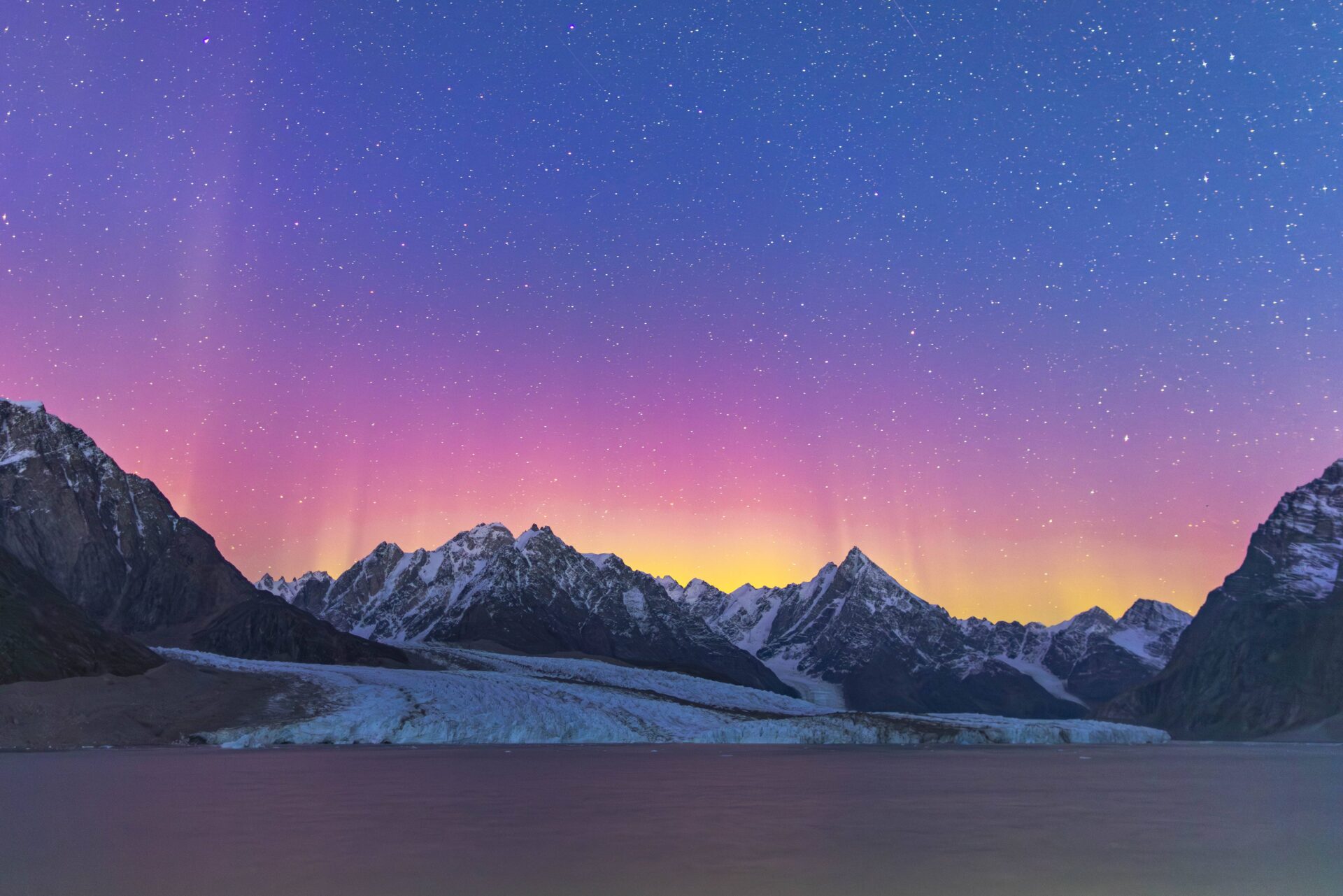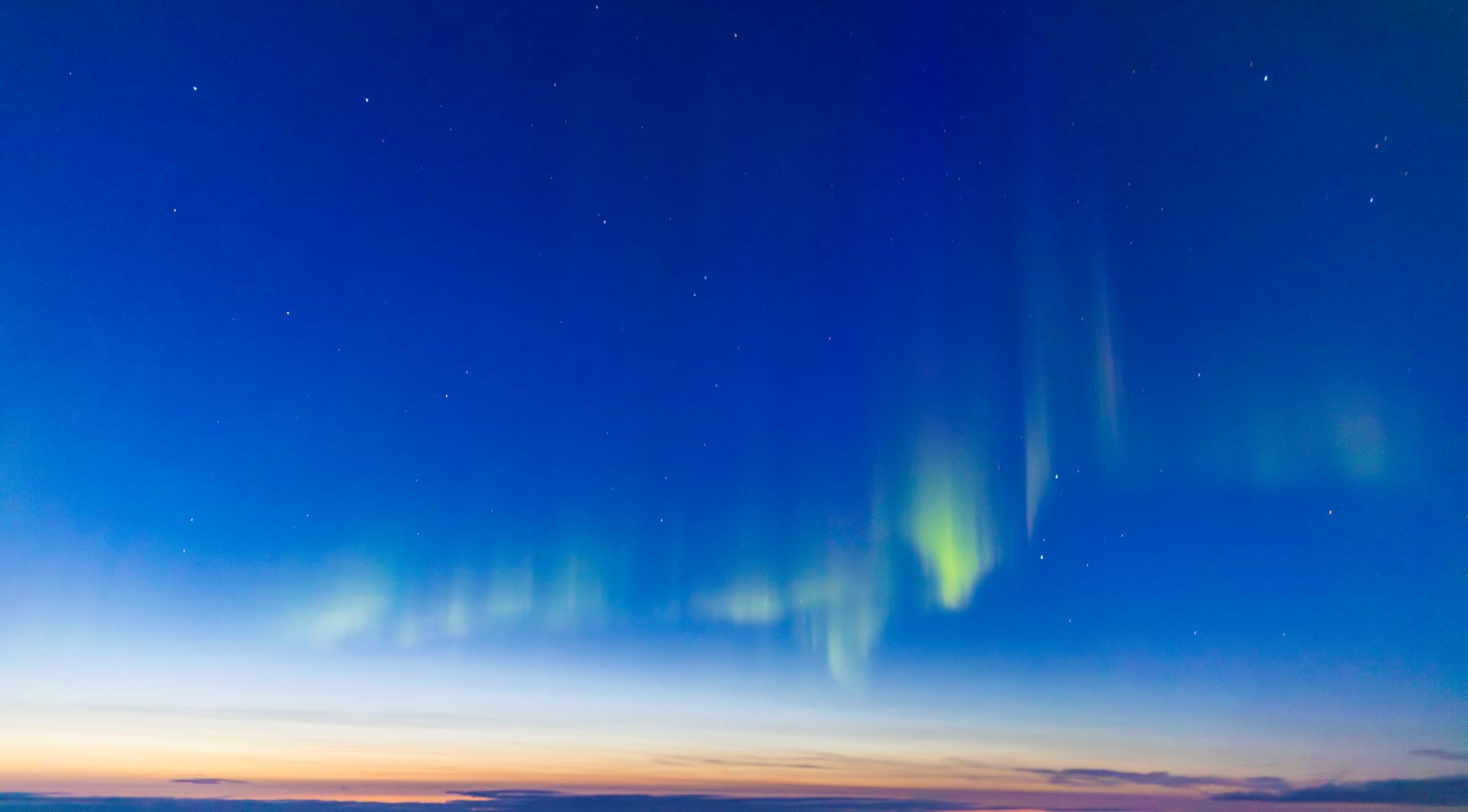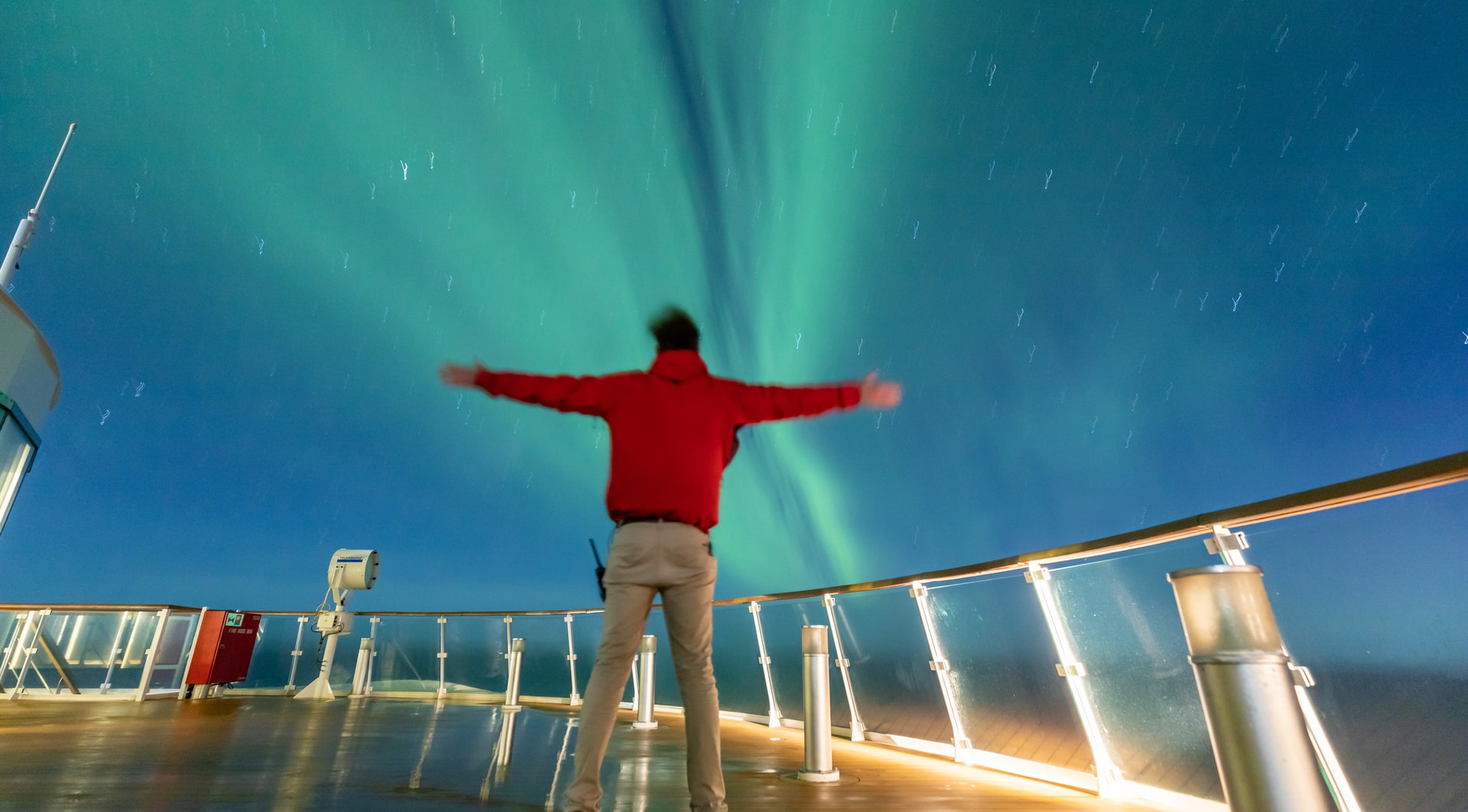The mesmerising and otherworldly spectacle of the aurora borealis, also known as the Northern Lights, has captivated humanity for centuries. As we eagerly anticipate the celestial dance that lights up the polar skies next Arctic season, let’s explore the predictions for the aurora borealis in 2024 and what factors contribute to this breathtaking natural phenomenon.
Understanding the Northern Lights
The aurora borealis occurs when charged particles from the sun, mainly electrons and protons, interact with Earth’s magnetic field and atmosphere. This interaction produces vibrant hues of green, pink, purple and blue that dance across the night sky near the Earth’s polar regions.

Solar Activity, Sunspot Cycles & Geometric Storms
One of the key factors influencing the intensity of the aurora borealis is solar activity. The sun goes through a natural 11-year cycle of solar maximum and solar minimum. During the solar maximum, there is an increased number of sunspots, which are areas on the sun’s surface with intense magnetic activity. This heightened solar activity often leads to more significant and frequent displays of the Northern Lights.
In addition to solar activity, the occurrence of geomagnetic storms plays a crucial role in the visibility and intensity of the aurora borealis. Geomagnetic storms are caused by disturbances in the solar wind that interacts with the Earth’s magnetosphere. These storms can amplify the Northern Lights, making them more visible at lower latitudes than usual.
So, what’s in store for 2024?
Drum roll, please! The exciting news is that scientists and astronomers have predicted that 2024 will coincide with a solar maximum, marking a period of increased solar activity and storms.
This bodes well for travellers hoping to catch a glimpse of the Northern Lights in 2024 and tick this incredible experience of their travel bucket list, as the likelihood of witnessing vibrant and widespread displays of the Northern Lights is higher during these peak solar phases.
Of course, it’s impossible to pinpoint the exact times, locations and intensities of Northern Lights displays as the phenomena can be influenced by numerous factors, making predicting Northern Lights displays as exciting and challenging as ever!

Best Destinations to Witness the Northern Lights
While the aurora borealis is typically visible near the Earth’s polar regions, during periods of heightened solar activity, it may be visible at lower latitudes. However, to maximise your chances, choose a destination or destinations within the Arctic Circle, and opt for locations with minimal light pollution and clear, dark skies. Among the top destinations for viewing the aurora borealis are Greenland, Iceland, Svalbard and Norway.
Greenland
With its vast open landscapes and minimal light pollution, Greenland provides an excellent backdrop for observing the Northern Lights. While getting there can be a challenge, the good news is that once you’re there, it’s possible to see the Northern Lights from almost anywhere in the country! The towns of Ilulissat and Kangerlussuaq are particularly popular for aurora viewing due to their location within the Arctic Circle. Travellers can choose from various activities, such as dog sledding or staying in igloos, to enhance their Northern Lights experience, or join a Greenland expedition to experience the country’s vast landscapes, fascinating culture and rich history.
Iceland
Iceland is a favourite destination for travellers wanting to experience the Northern Lights, as it offers a unique blend of natural wonders – including postcard-perfect volcanoes, glaciers, geysers and waterfalls – and enriching cultural experiences. With longer hours with dark skies and clear night skies, the Westfjords and North Iceland are the best regions to head to if you want to catch a glimpse of the Northern Lights. However, there are plenty of places you can head to if you’re short on time, including Thingvellir National Park, located on the Golden Circle near Reykjavík.
Svalbard
One of the northernmost inhabited areas in the world, this Norwegian archipelago offers a unique Arctic experience, with dramatic fjords, untamed peaks and iconic Arctic wildlife, from elusive polar bears to fluffy Arctic fox. Due to its high latitude, Svalbard is an ideal location for observing the aurora borealis, especially during the winter months when the nights are long. The fascinating town of Longyearbyen serves as a hub for travellers exploring Svalbard in search of the Northern Lights.
Norway
Norway boasts numerous locations for witnessing the Northern Lights, including Tromsø, Kirkenes, Alta, Bodø, the North Cape and the Lofoten Islands. Tromsø, often referred to as the ‘Gateway to the Arctic’ is a popular destination known for its vibrant city life and accessibility to the Arctic wilderness. As a rule of thumb, the further north you go, the better your chances of seeing them are, and the longer the window for viewing.

Maximise your chances with Aurora
Aurora Expeditions’ Northern Lights adventures take expeditioners across the seas, seeking out the aurora borealis in multiple destinations round the Arctic Circle. Onboard your small, purpose-built ship, the Greg Mortimer, you’ll skirt around the Norwegian and Greenland seas, exploring remote islands and villages by day and looking skyward as night falls in the hopes of catching a magical lights display.
Travelling by expedition ship means that you’ll be able to visit remote areas in the High Arctic, with little or no light pollution, to maximise your chances of seeing the aurora.
Whether you’re an avid aurora chaser or traveller hoping to experience them for the first time, 2024 promises to be a year filled with awe-inspiring displays of the Northern Lights, creating memories that will last a lifetime. So, mark your calendars, prepare your cameras, and get ready to witness the magic of the aurora borealis in all its glory.
Maximise your chances of seeing the Northern Lights in 2024 by reserving your place on our Northern Lights Explorer voyage. Contact our friendly reservations team or request a quote today.
Northern Lights Explorer
Discovery
Shorter days in the high latitudes means darkening evening skies, so on this voyage we stay close to the coastlines of the Arctic Circle, skirting around the Norwegian and Greenland...
19 Days
From AUD $26,275.50/pp

